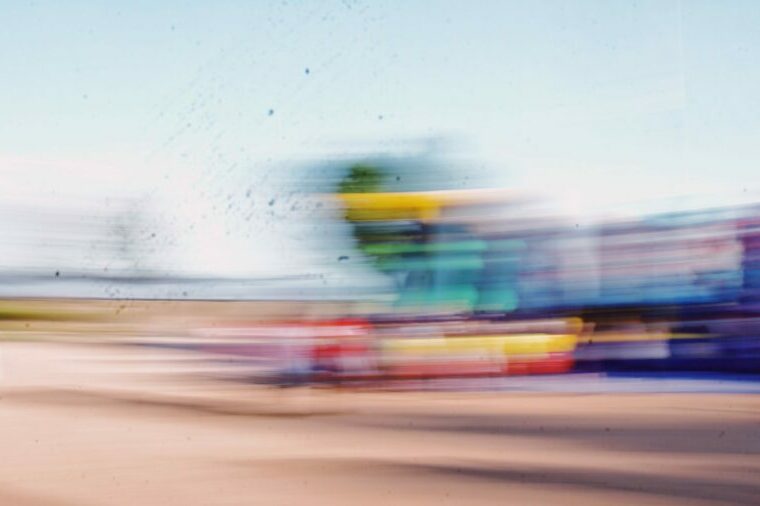Vestibular rehabilitation, also known as vestibular rehabilitation therapy, is a specialized form of physical therapy used to treat vestibular disorders or symptoms, characterized by dizziness, vertigo, and trouble with balance, posture, and vision. Other problems can also arise that are secondary to vestibular disorders, such as nausea and/or vomiting, reduced ability to focus or concentrate, and fatigue. Vestibular rehabilitation aims to eliminate these symptoms and return you to living life normally once again.
Vestibular (Balance/Dizziness) Rehabilitation

Balance can become a problem for many people at some point in their lives, and we want you to know that is something that we can help with. The vestibular system controls your balance. It includes the inner ear and the part of the brain that processes sensory information that helps you control balance and eye movement. If these areas are damaged by disease, genetic conditions, or injury, then disorders such as vestibular imbalance can result.
Symptom/Signs of Vestibular Disorder
- dizziness and vertigo
- imbalance
- spacial disorientation
- vision problems
- changes in hearing
- cognitive and/or psychological changes
Most imbalance conditions can be resolved with vestibular rehabilitation. This treatment helps to minimize dizziness and improve balance by restoring proper function to the vestibular system. If you have ever sat up from your bed in the morning and noticed the room spinning “Vertigo”, then you may have a condition known as Benign paroxysmal positional vertigo (BPPV), our physical therapists are very effective in treating this condition.
At Pick PT we will develop an individualized treatment plan for vestibular rehabilitation. This might include exercises that focus on the components of the vestibular system, like the eyes, ears, and legs. An at-home exercise program may be implemented specific to each patient as well.
How does Vestibular and Balance/Dizziness Disorders Impact Lives:
Symptoms due to vestibular disorders can diminish quality of life and impact all aspects of daily living. They also contribute to emotional problems such as anxiety and depression. Additionally, one of the consequences of having a vestibular disorder is that symptoms frequently cause people to adopt a sedentary lifestyle in order to avoid bringing on, or worsening, dizziness and imbalance. As a result, decreased muscle strength and flexibility, increased joint stiffness, and reduced stamina can occur.
Treatment strategies used in rehabilitation can also be beneficial for these secondary problems. Common vestibular related disorders and symptoms treated at Pick PT include, but are not limited too:
- Benign Paroxysmal Positional Vertigo (BPPV)
- dizziness and vertigo
- imbalance
- spacial disorientation
- vision problems
- changes in hearing
- cognitive and/or psychological changes
What Causes the Condition
Vestibular disorders have a variety of causative factors but most commonly will present with symptoms such as dizziness, vertigo, and disequilibrium. These are common symptoms of peripheral vestibular disorders (a dysfunction of the balance organs of the inner ear) but can also be symptoms of central vestibular disorders (a dysfunction of one or more parts of the central nervous system that help process balance and spatial information). It is important the root cause is determined in order to rule out more serious central conditions that require immediate medical attention. Your Physical Therapist will perform assessments to determine whether or not you are appropriate for physical therapy at this time or would benefit from being referred out to receive additional medical attention. Peripheral vestibular disorders are commonly treated in an outpatient setting and can be caused by one or more of the following:
- Minor to Severe head trauma
- Inner ear surgery
- Prolonged positioning on your back
- Infection
Dizziness and disequilibrium can also be symptomatic and unrelated to the vestibular system. Common causes could include but aren’t limited to:
- Age
- Weakness
- Cervicogenic
- Cardiovascular related
What Pick PT Does to Help
At Pick PT we specialize in vestibular rehab and treatment and balance/dizziness disorders. Our speciality trained clinicians have experience treating patients with:
- Benign Paroxysmal Positional Vertigo (BPPV)
- Vestibular Neuritis or Labryinthitis
- Vestibular Migraine
- Concussion
- Meniere’s Disease
- Acoustic Neuroma (Pre- and Post-surgical)
- Central Conditions (Vestibular stroke, MS, etc.)
- General Imbalance and Multifactorial Dizziness
Our company is committed to optimal vestibular rehabilitation and has invested in Insight Infrared Video Goggles from Vestibular first for us as a standard part of our vestibular exam. In an effort to provide 100% evidence-based practice, it has been shown that clinicians who use infrared video goggles are able to visualize 100% of abnormal eye movement that provides critical information toward accurate diagnosis and treatment of vestibular patients.
Vestibular Rehabilitation Therapy FAQs
What kind of outcome can I expect from back pain physical therapy?
What can I do to prevent low back pain?
Contact Pick PT Today
Contact us today. Our dedicated team of physical therapy professionials are ready to help you live life moving!
Rexburg
160 W 2nd S #1
Rexburg, ID 83440
Mon & Wed 7am-7pm
Tues & Thurs 8am-12pm
Friday 7am-6pm
Rigby
711 Rigby Lake Dr Suite 102
Rigby, ID 83442
Mon, Wed, & Fri 7am-7pm
Tues & Thurs 8am-12pm
Idaho Falls
2277 E Lincoln Rd
Idaho Falls, ID 83401
Mon, Wed, & Fri 7am-7pm
Tues & Thurs 8am-12pm
921 S Utah Ave
Idaho Falls, ID 83402
Mon, Wed, & Fri 7am-6pm
Tues & Thurs 8am-12pm
3155 Channing Way D
Idaho Falls, ID 83404
Mon, Wed, & Fri 7am-6pm
Tues & Thurs 8am-12pm


